The thirst for coffee knowledge
Kenneth Clint Bajade's innate curiosity led him to explore the world of coffee. Driven by a thirst for knowledge and a desire for new experiences, he became an advocate for the welfare of local farmers and the importance of quality coffee to consumers.
Before Bajade became truly engaged in the local coffee industry, he simply loved coffee. He did not bother to serve quality coffee or educate his customers about it. “I loved drinking coffee before. I was just a coffee lover, but not an enthusiast,” he said.
The initial concept for Coffee Brothers Co. was to create a traditional kapihan and sikwatihan, serving native kakanin delicacies such as rice cakes. The seating would be on the floor, with the interiors made from rattan, reminiscent of a bahay kubo.
However, during the planning process, Bajade proposed to his business partners the idea of transforming it into a more conventional coffee shop. After discussing the pros and cons of both options, the team ultimately decided to go with Bajade's idea. They believed that it would appeal to a broader audience and provide greater growth opportunities.
In their first year of operation, Bajade recalled that they only served "normal coffee." Sales were satisfactory during their first month. But when pandemic restrictions were reinstated in the first quarter of 2021, their sales declined because customers were unable to leave their homes.
Faced with this challenge, Bajade decided to explore other options, including sourcing beans from different suppliers. Little did he know that this exploration would lead him to become deeply involved in the local coffee industry of the region.
The First Coffee Training
In March of 2022, Bajade attended his first coffee appreciation event organized by coffee advocates in GenSan. This experience expanded his horizons about coffee, but it also raised more questions about the industry.
One night, while scrolling through his Facebook feed, he came across a post from DTI South Cotabato about Sensory Analysis and Brewing Training for Baristas and Coffee Shop Owners. He decided to attend the training, and the rest is history.
During the training, their resource speaker was the Q Robusta Grader Arnel Cadeliña. Bajade also met other coffee entrepreneurs from South Cotabato, as well as ACDI/VOCA staff members Emeline Superioridad-Sabado and Maria Jeaia Alexia Barredo, who shared their knowledge about coffee.
“That training was informative, but it raised more questions. It felt like it was too short to fully understand the entire coffee industry,” Bajade recalled.
Since the two-day training was not enough for him, he sought answers on his own. That event became his starting point for going to the farm level and immersing himself in coffee quality advocacy.
"As a result of that experience, I changed my coffee suppliers. I sought out Matutum Coffee because I wanted to help promote it through my coffee shop. That's when I met Denis Cocoba, who helped me immerse myself with the coffee farmers in Polomolok," he said.
In April 2022, Bajade and Cocoba visited various farms in the Mount Matutum area and began engaging with the farmers. They had coffee sessions, during which they conducted cupping and studied manuals to gain more knowledge about how to help revive Mount Matutum Coffee.
That month also marked the first anniversary of their coffee shop. Many important figures in the coffee industry attended the event, providing Bajade with an opportunity to expand his network and gain valuable insights from them.
The Q Professional Exam
Fate smiled upon Bajade when he was allowed to take the Q Arabica Cupping Essentials (QCE) course. QCE is a stand-alone course with newly developed materials, designed for beginners but offering a thorough understanding of the Specialty Coffee Association (SCA) cupping form and protocol.
"The slot wasn't originally meant for me. It was for another coffee shop owner, but that person backed out for some reason. Ms. Barredo recommended me for it as a scholarship grant from ACDI/VOCA," he said.
After completing the Q Cupping Exam, he gained a comprehensive understanding of coffee and its various nuances. He did not expect it to be such a big deal, but the knowledge he acquired from the exam opened up a whole new world of opportunities for him.
With his newfound expertise in coffee cupping, he was able to explore new avenues and take on challenges that he never thought possible before. The QCE proved to be a turning point in his life, and he was grateful for the doors it opened for him in the world of coffee.
Bajade, who is from the South Cotabato province, made an effort to help revive the coffee industry specifically sourced from Mount Matutum. However, he found it challenging to uplift the province’s coffee industry. Instead of wallowing in this setback, he went to the Sultan Kudarat province where farmers from the Municipality of Senator Ninoy Aquino (Kulaman) asked for his help.
One of the promising young farmers Bajade met was Denz Bert Deramos. Bajade wanted to help him with farm-level interventions for coffee production. He introduced Deramos to established markets and linked him to other coffee players. Bajade even helped Deramos at his own expense, without expecting anything in return.
“You can't help a farm if the farmer doesn't see you as valuable. Farmers are looking for a stable market, so the help shouldn't only be in buying their products. The help should also be on a training level, to provide them with the knowledge and skills they need to succeed,” Bajade said.
In September of 2022, he took the Q Arabica Exam and was well-prepared for it, thanks in part to his previous experience with the QCE. His exposure to the coffee industry was a big help in preparing for this exam.
“It was all interconnected, from the farm to the coffee shop exposure. I was doing what I believed was my take on coffee. I gained knowledge and experience within the span of 6 months. I learned by listening and then transferred that knowledge to the farmers,” said Bajade.
The Q Arabica Exam is a certification program that allows individuals to become Q Graders for Arabica coffee. The Coffee Quality Institute (CQI) defines a Q Arabica Grader as an individual who has been certified by the CQI to grade and score coffees using standards developed by the Specialty Coffee Association of America (SCAA). To achieve this credential, individuals must pass a series of 22 tests.
The Q Arabica Training and Exam Course is a six-day program that assesses an individual's ability to analyze coffee through sensory evaluation. The course consists of eight testing categories, with a total of eighteen practical exams and one written exam. The first three days are dedicated to test preparation and review, while the remaining three days are reserved for the exams themselves.
“The Q Arabica Exam was incredibly challenging. It was one of the hardest and most stressful exams I have ever taken. I was fortunate to be a scholar of ACDI/VOCA, but it was still a big challenge. The exam was unique and based on international standards, making it a once-in-a-lifetime opportunity,” he said.
On transferring knowledge
After successfully passing the Q Arabica Exam and becoming a certified Q Arabica Grader, Bajade returned to his community to continue his work on farm-level interventions. He used his knowledge and expertise to help train the coffee farmers, providing them with the skills and techniques they needed to improve their coffee production. Bajade's efforts were focused on empowering the farmers and helping them to achieve greater success in the coffee industry.
For Bajade, imparting knowledge is a delicate process that must be approached with care. He believes that misinformation can lead to confusion and misunderstandings. As such, it is important to ensure that the information being shared is accurate and well-understood. Bajade's approach emphasizes the importance of clear communication and the careful dissemination of knowledge to avoid confusion.
"One of the challenges faced by our farmers is maintaining the quality of their coffee production. To achieve consistent quality, it is essential to focus on farm-level interventions and dedicate resources to this effort. Additionally, coffee shop owners have a responsibility to support our farmers by committing to providing quality coffee to their customers," said Bajade.
In addition to supporting farm-level interventions, Bajade also collaborates with other coffee industry players in the region. He and his team have organized coffee appreciation events and roasting classes to raise consumer awareness and education. For example, at his coffee shop, customers are invited to observe the coffee roasting process. Bajade's efforts span from farm-level interventions to coffee shop education.
However, Bajade has observed that some local coffee shops continue to serve low-quality coffee at inflated prices. Many consumers are unaware of the quality of the coffee they are consuming. This is why raising consumer awareness is crucial in addressing these unfair business practices.
"The goal of coffee appreciation events is to educate attendees about the standards of quality coffee and industry best practices. By providing a foundational understanding of coffee, participants will leave with a desire to expand their knowledge and refine their tastes over time. As we empower consumers to recognize and demand quality, coffee shops will be compelled to change their practices and offer better products,” said Bajade.
Bajade also emphasized the importance of preparing coffee farms to meet increasing demand. With a recent resurgence of interest in coffee, he said that it is essential for all stakeholders to work together to improve both the quality and supply of coffee in the region.
"We hope that, in addition to being a mass producer of coffee, our region will also become known for the quality of its coffee within the next 5-10 years. By implementing a long-term plan focused on improving the quality of our coffee, we can change the palate of the entire region and elevate its appreciation for high-quality coffee."
Bajade was awarded the CQI Merit Award at the 2023 Philippine Coffee Expo in recognition of his significant contributions to the local coffee industry. Bajade was among a select group of Q Professionals who were acknowledged for their dedication and positive impact on the Philippine coffee sector.
"Regardless of whether I am a Q Arabica Grader, I am committed to pursuing the highest quality of coffee, even in the most remote mountain regions. I will seek out farmers who share this commitment and connect them with the right individuals, resources, and training to improve their coffee quality. By involving more people in this effort, we can collectively raise the standard of coffee production,” Bajade said.
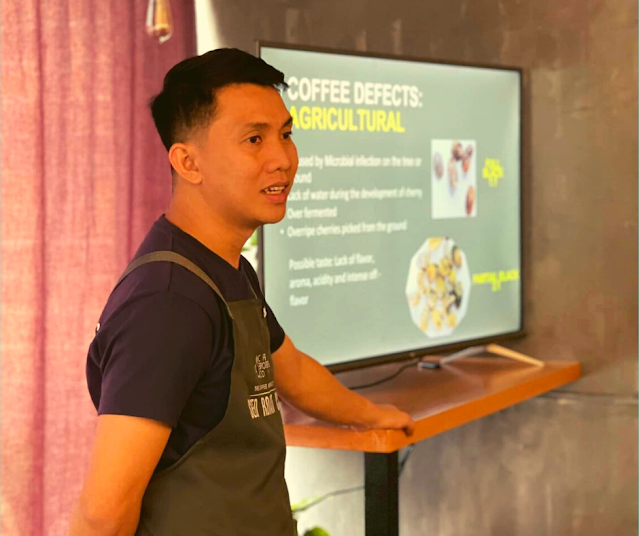



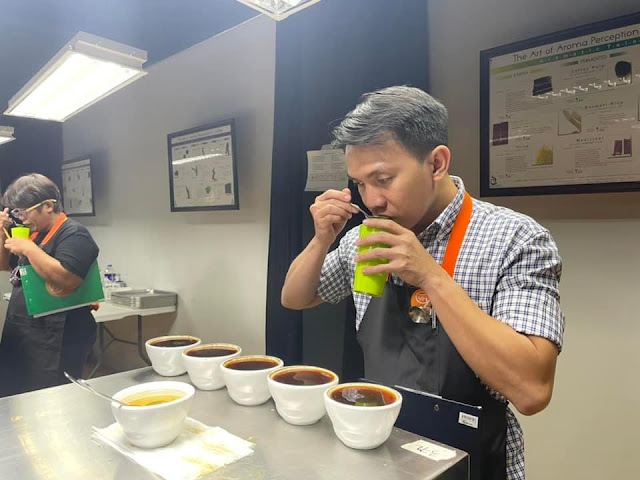

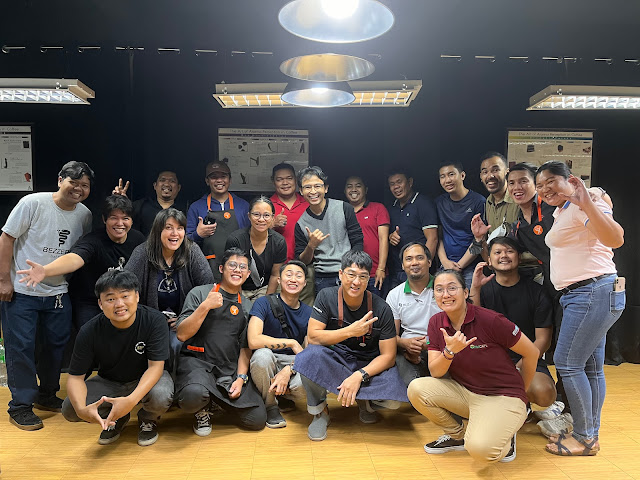
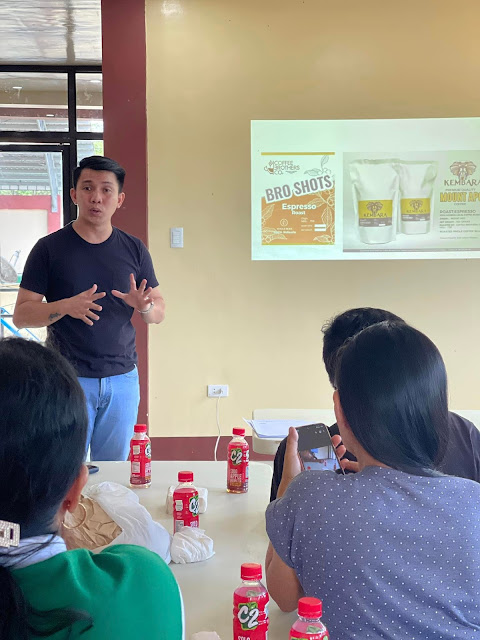
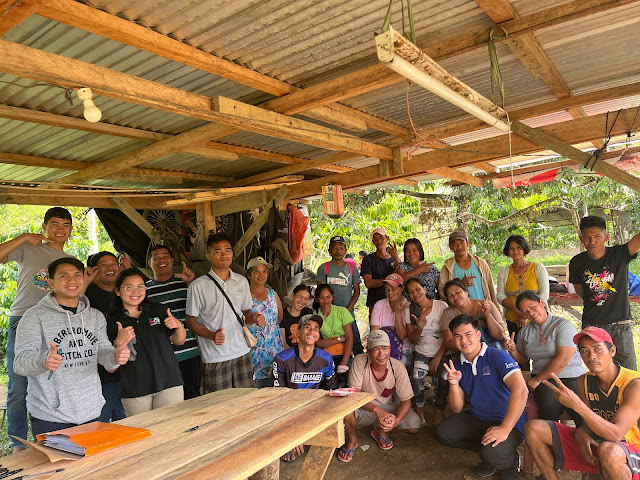

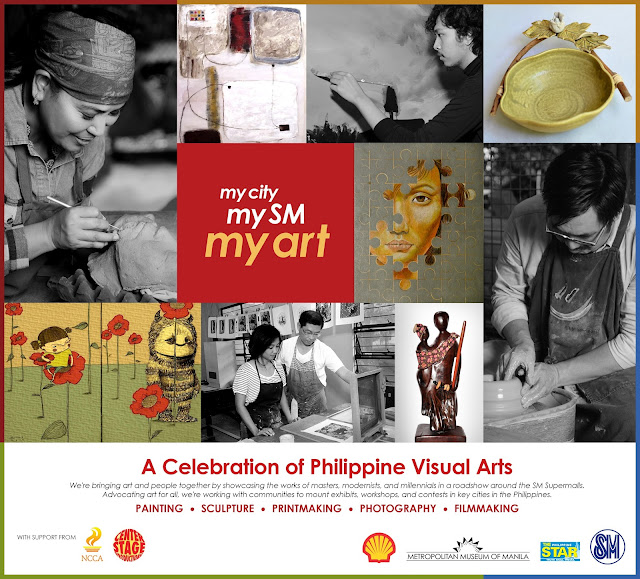
Comments
Post a Comment
The author encourages readers to post sensible comments in order to have meaningful discussions. Posting malicious, senseless and spam comments are highly discouraged.
Thank you for reading Yadu Karu's Blog.